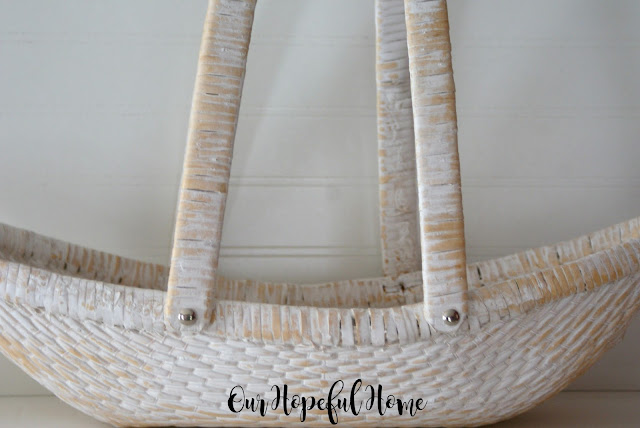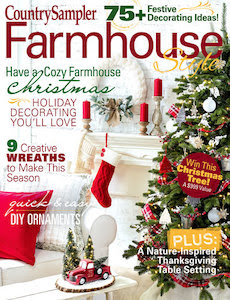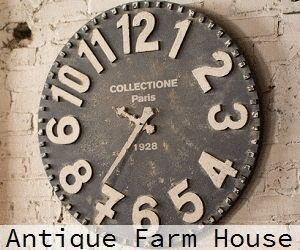I recently shared with you one of my all-time favorite vintage finds -- a thrifted farmhouse wooden trug. After that, I heard from many of you who confessed that you'd never even heard of a trug before. And it got me thinking. So I decided to put together my own little unofficial "Trug Guide," if you will, for the uninitiated. Hopefully even those of you who have heard of trugs before will learn something new.

The word trug comes from the word "trog," or boat-shaped vessel. Trugs actually date back to the 1500's. The most commonly known trug since the 1820's is called the Sussex Trug, named for its place of origin in the village of Herstmonceux, Sussex, England. This particular Sussex trug I've had for YEARS. I think it's been used in all three of our homes over the past 20 years. I'll bet you've even seen these beauties in your local home improvement store or garden supply store. You just didn't know what they were called. So now you know.
I've borrowed these lovely photos from an old post of mine where I share different ways to display lilacs. (You'll notice that a few of the pictures have my old blog name on them.)
So be sure to check out How To Display Lilacs: 3 Ways. With spring right around the corner I hope you'll be inspired!
I think it was the trug's pure simplicity that attracted me the most. The original Sussex Trug was made with willow boards and a chestnut frame. Alas, mine is just a reproduction but I love it just the same.

And here's the original farmhouse wooden trug that got you all asking questions in the first place. Right now it's functioning as a tray on the living room coffee table along with blue vintage Mason jars, vintage clocks and a farmhouse cow creamer.
Here's what I'll call trug number two, which I've also had for years.
What I like the most about this one is its whitewashed, farmhouse look.
Faux hydrangeas are in it for now. But I can't wait until I can put some real hydrangeas in it from the garden!
For anyone who might be interested, I got most of my trug background information from an online article entitled "Interview with Cuckmere Trug Company" that I found on a website called Merchants and Makers. It's chock-full of information about trugs and their long and interesting history. So keep your eye out for one of these beauties at your local flea market or thrift store. And when it comes to what you can do with it, the sky's the limit.
Do YOU have a trug?
If yes, how do you use yours?
If yes, how do you use yours?
Well, that's it until next time!
I hope you enjoyed reading
Easy Farmhouse Decor: Garden Trugs.
And thanks so much for spending
time with me today!
Be sure to stay in touch:
Just click on my Facebook, Pinterest, Twitter or Instagram icons in my top right sidebar. You can also sign up there to receive my blog posts via email as well.
Don't forget to Pin it!
Don’t miss another thrifty,
DIY home décor post!
























Leave a Comment!
So pretty. I like bringing the outside in.
Amalia
xo
Looks so beautiful with the lilacs! It was fun learning all about them!
Thanks Kathleen ~ I learned something new! The whitewashed trug is a beauty, as are the lilacs!
I'm so glad that someone asked about trugs. I am a Sussex born lass with fond memories of trugs when I lived in England. Can I also ask if you are able to change the colour of the font of your blog, on my computer (and my previous one) it is very faint and hard to read.
Regards
Sue
That's a good explanation of what a "trug" is. Glad I know now b/c I like to learn new words, without having to look them up myself, of course! I'm lazy I guess. Like how you are using them too, both for lilacs, and the more rustic look with the clocks.
I don't have a true but have wanted one to bring flowers and produce in from the garden. You have some great examples. I'm going to be looking for one at the thrift stores!
Post a Comment